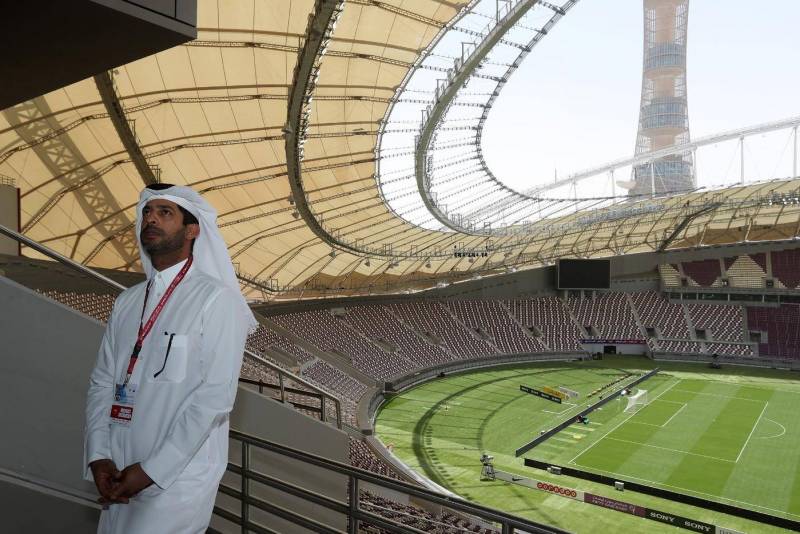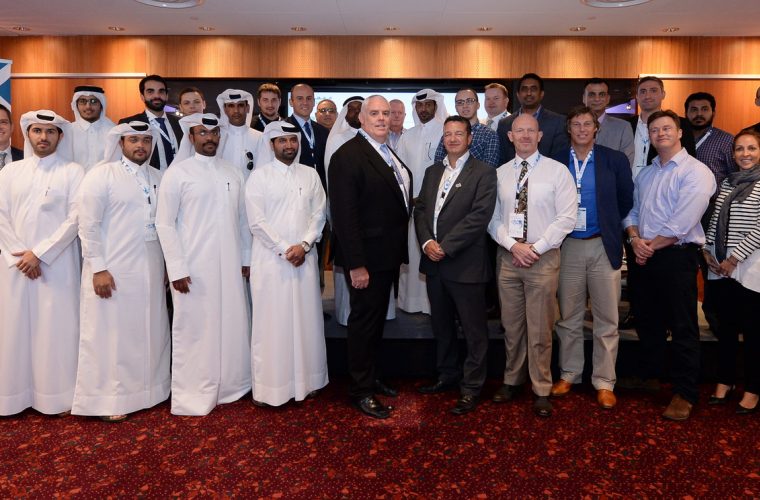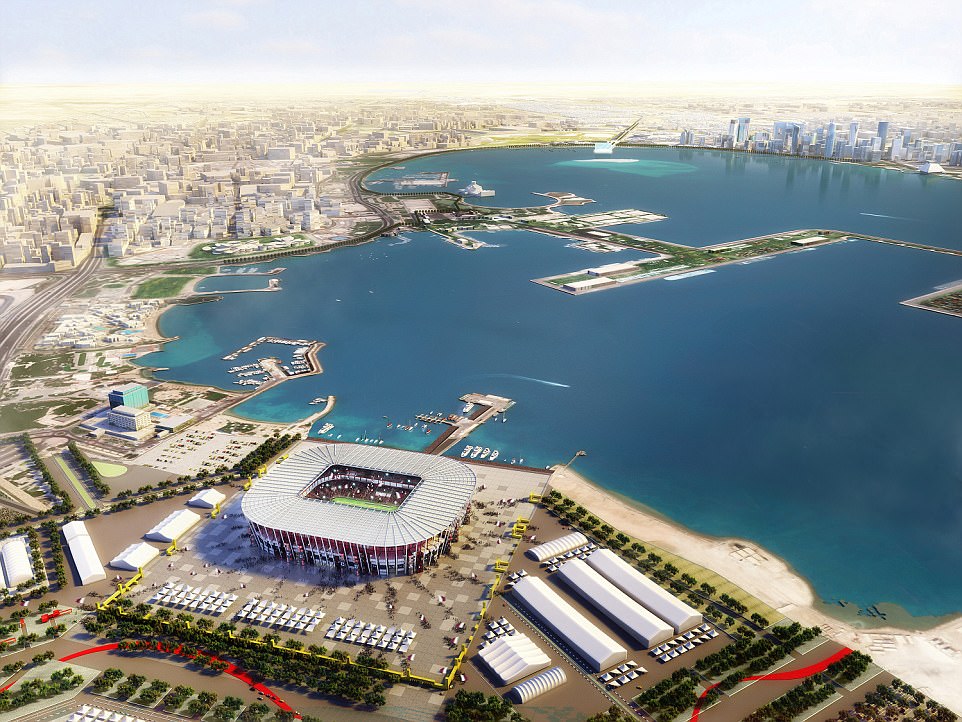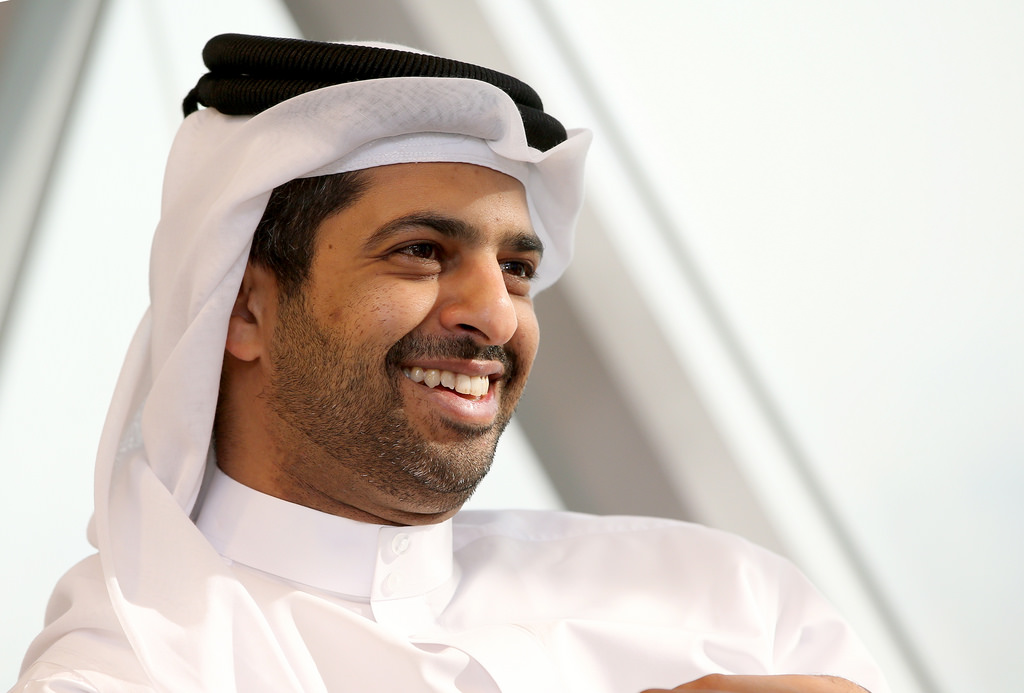« 2022, the opportunity to project a true image of the Arab world »
The Deputy Secretary of Qatar’s Supreme Committee for Delivery & Legacy , Nasser Al-Khater, granted an exclusive interview to 2022mag. He touched on all the important topics. Without taboo : the progress of work on the huge project started a few years ago, the impressive calm of the leaders in front of the attacks of which the candidacy of the Emirate was the target, the World Cup 2022 as the catalyst of the economy of the country notably with the Project « National Vision 2030”. It is also about respecting the values of ecology and sustainability, as well as the benefits that this mega event will bring to the region and to the Arab world in general.
Mr Deputy Secretary, since the culmination of the 2018 FIFA World Cup in Russia, the focus is now on the 2022 edition in Qatar. Is this a new stage or have you been at work for the past 10 years? If this is a new stage, what has changed since the final match in Russia? Is there a little more pressure?
NAK: Work began the day after we won the bid to host the FIFA World Cup. Since then, we have been hard at work planning and implementing all infrastructure projects and host country planning and operations required to host a unique edition of the FIFA World Cup in 2022, the first in the Arab world. The World Cups in Brazil in 2014 and in Russia in 2018 were beneficial; we observed and gained knowledge and expertise that has helped us optimise our own plans.
With almost 10 years having passed now since launching our bid and consequently working on delivering our promises, there is no pressure, on the contrary – we look forward to 2022 and making the region proud of its first-ever FIFA World Cup. We have already launched our first tournament-ready venue – Khalifa International Stadium – last year, while all other projects are on schedule and will see main works completed between 2019 and 2020. Wider supporting infrastructure projects in Qatar are also progressing rapidly and nearing completion, and we are confident that we will host an exceptional tournament. 
In regard to constant media attacks against you and other 2022 FIFA World Cup stakeholders in recent years, can you tell us what that experience has been like?
Every host nation of an international mega-event, whether sporting or otherwise, faces some degree of criticism. In our case, this may have been heavier than normal, and perhaps not always motivated by reasons concerned with the World Cup or football more generally. Where the criticism was constructive, we welcomed it and worked on improving the issues highlighted. When it comes to these unwarranted attacks you describe, our progress and achievements on the ground speak for us, and we welcome all media, as we always have, to see this for themselves here in Qatar.
In all cases, we are continuing with our preparations to host a unique edition of the FIFA World Cup in 2022 and ensuring that it is a tournament of innovation, hospitality and legacy.
FIFA President Gianni Infantino has just visited you. The media reports suggest that he is fully satisfied with your progress and, above all, he says that the 2022 FIFA World Cup will be the best in history. Does this give you satisfaction?
NAK: We have always maintained that the 2022 FIFA World Cup will be one of the most unique editions of the tournament, and the FIFA President’s testimony definitely shows that we are on the right track.
In just over four years, Qatar will be more than ever at the center of the planet – Will a successful World Cup open up new avenues for Qatar to succeed at all levels (economic, social, cultural, political, ecological)?
NAK: The State of Qatar has always recognised the ability of the FIFA World Cup and the power of football in facilitating social and economic development – which is why we bid to host the tournament. From the economic perspective, the State has always viewed the 2022 FIFA World Cup as being a catalyst for accelerating not only the growth of the local economy by providing opportunities for local businesses, companies and contractors, but also wide infrastructure and nation building projects aimed at transforming the State of Qatar into a modern state. The legacy of these projects will be felt by generations to come.
We’re also utilising the 2022 FIFA World Cup as a platform for several legacy programmes aimed at supporting the realization of the 2030 National Vision, specifically a knowledge based economy and economic diversification. For example, our flagship corporate social responsibility programme – Generation Amazing – uses the power of football as a tool of positive social change, working with youth in Qatar and less fortunate communities in the region to empower them with life and leadership skills for them to be self-sufficient and dependent.

The programme has positively impacted more than 250,000 beneficiaries to date. We also launched Challenge 22 – a regional award that aims to inspire a spirit of innovation and entrepreneurship amongst youth in Qatar and the Arab world and encouraging the growth of the SME sector. It challenges youth to come up with solutions aimed at enhancing our efforts to host the tournament, and received more than 3,000 registrations in its second cycle from across ten Arab countries. Our Josoor Institute for academic excellence is upskilling the region’s upcoming generation of mega-event professionals, not only to help us in hosting the 2022 FIFA World Cup, but to also support the wider direction of both the State of Qatar and the region in becoming a hub for mega-events, both in sports and non-sports sectors. Josoor has seen more than 3,500 members from Qatar and the region take part in its various courses, diplomas and professional development programmes thus far.
With the World Cup, Qatar has established itself in the world as the country which has made sports as a whole a tool for local and international development. Some geopolitical experts even say that your country has invented the concept of diplomacy via sport, what do you think of such a statement?
NAK: It’s no secret that Qatar is a sporting nation. The country has a long history of hosting sporting events that started in the 1970s, and today hosts more than 90 local, regional and international sports events every year, ranging from football, golf, athletics, cycling and many others. But I wouldn’t say that sports diplomacy is exclusively behind the State’s efforts to establish itself as an international sports hub. Sport is intertwined with and has long played a role in Qatar’s development, and from a World Cup perspective, as discussed earlier, we bid to host the tournament not only out of our love and passion for football, but to facilitate the social and economic development of Qatar and region more widely.
It’s also important to recognise the ability of the FIFA World Cup in bringing people together – another reason why we bid to host the tournament, which we’ve always said will be a tournament for the people of region. It will be the first mega sporting-event of its size in the Arab world, and will bring with it the biggest influx of sports fans the region has seen – introducing them to Arab culture and traditions. This is an unprecedented opportunity to project a true image of the Arab world as a peaceful and hospitable region, contrary to the misconceptions often circulated about it. And at a time when global dialogue is emphasising cultural differences rather than similarities, it is crucial that we use every chance we get to bring people together – an opportunity offered by the tournament and facilitated by football’s status as a universal language common to people from all around the world.

In this day and age, global warming and the ecological state of the world has become an emergency, a global one. The choice to build such enormous infrastructure for the World Cup, and then demount some seats or even bring apart a whole stadium (Ras Abu Aboud), is this not a sign of Qatar’s willingness to participate in this ecological fight?
NAK: Sustainability and post-tournament legacy use are at the core of the design strategies for the stadiums and precincts proposed for the 2022 FIFA World Cup. We have sought the most creative and cost-effective ideas; innovations that have lead us to more sustainable outcomes in the design, construction and operation of Qatar’s tournament infrastructure. Ras Abu Aboud Stadium is a great example of this. It will be the first ever fully modular and demountable stadium in the history of the FIFA World Cup. Built near the Doha Port, the venue will be made of shipping containers, and after the tournament, it will be completely repurposed into smaller sporting and cultural venues across Qatar.
All of our other stadiums, with the exception of Khalifa International Stadium – which will be Qatar’s national stadium – are modular and will see their seating capacity reduced. This was done to ensure that post tournament, all tournament venues meet the needs of the local sports sector but also the local community. The modular seating will be donated to countries in need of sporting infrastructure, another way we are ensuring that the tournament leaves a long-lasting legacy.
The term “white elephant”, which in one way or another can be viewed as a negative contribution to the environment, will not at all apply to the 2022 FIFA World Cup. It is also important to note some of the natural strengths of our tournament hosting model too. The 2022 FIFA World Cup will be the world’s first-ever compact tournament, with a maximum travel distance between venues of 55km. In addition to a host of benefits this will provide players and spectators alike, it will also mean that air travel will not be required at a point during the tournament. This is a major sustainability benefit for organisers, especially when compared to previous editions of the tournament that were held across bigger tournament footprints.
Interviewed by Fayçal CHEHAT
